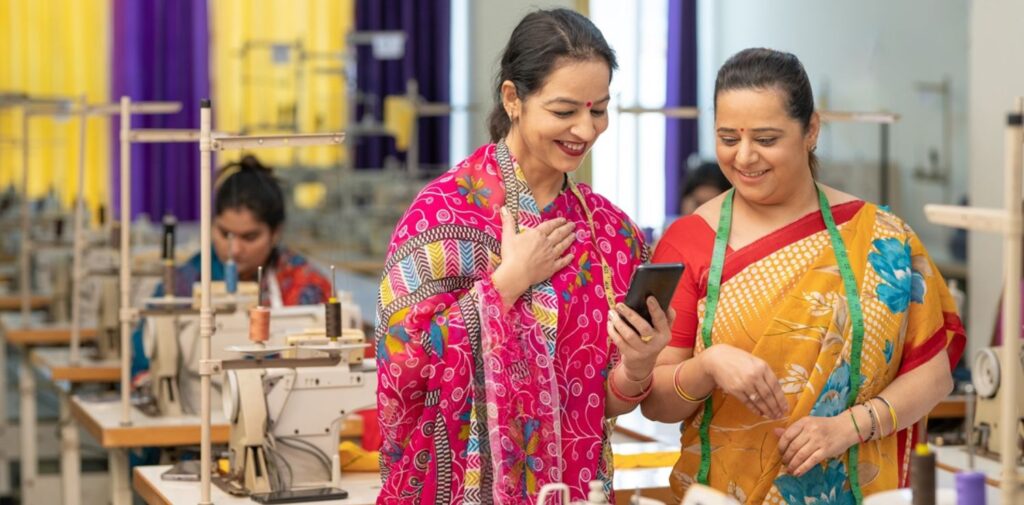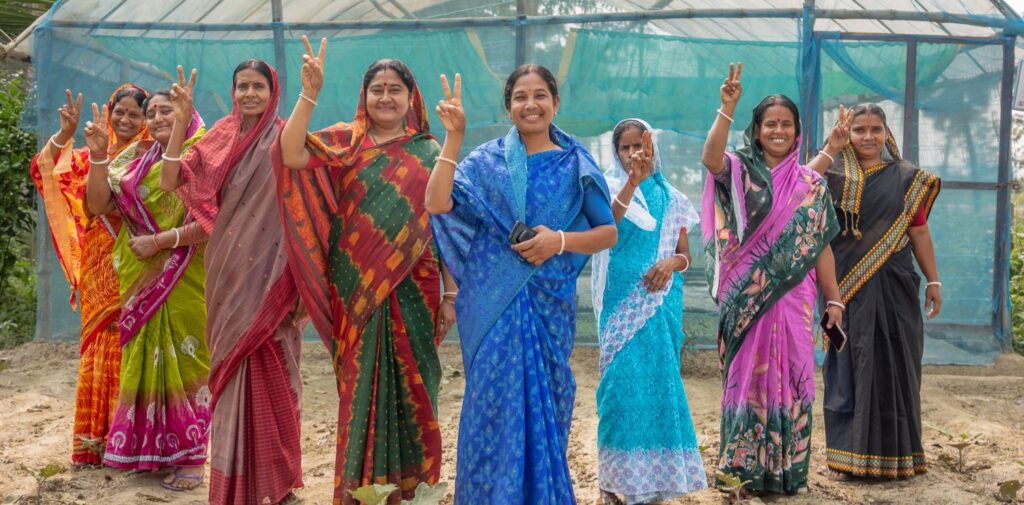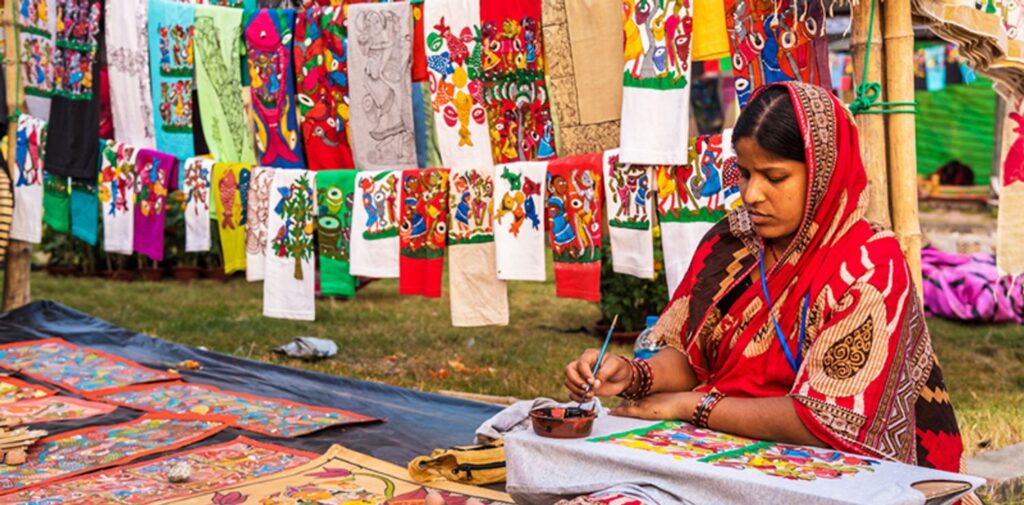In recent years, Indian women have been breaking barriers in various fields, and rural entrepreneurship is no exception. Traditionally, rural areas in India have been viewed as places with limited opportunities, especially for women. However, the growing presence of women entrepreneurs in these areas is changing the dynamics. From running small businesses to leading social enterprises, Indian women are playing a significant role in shaping the future of rural entrepreneurship. They are creating jobs, improving local economies, and empowering other women in their communities. This article explores the various ways in which Indian women are driving change in rural entrepreneurship and why their contribution is vital for the future of rural India.
Empowering Women through Entrepreneurship
The empowerment of women is a fundamental aspect of rural entrepreneurship in India. For years, rural women were restricted to household chores, and their economic participation was often limited to agriculture or informal labor. However, as education and awareness have improved, women are increasingly entering the world of business and entrepreneurship. Many women in rural India are taking the lead in setting up small-scale businesses like handicrafts, food processing, dairy farming, and tailoring. These businesses not only generate income but also provide women with a sense of independence and confidence.
The rise of self-help groups (SHGs) in rural India has been a game-changer for women’s entrepreneurship. These groups provide a platform for women to come together, pool their resources, and start businesses collectively. The government and various NGOs have supported these initiatives, offering training, micro-loans, and other forms of assistance. Women entrepreneurs in rural areas are now able to leverage these opportunities to break free from traditional roles and contribute to their families and communities in meaningful ways.

Creating Sustainable Businesses
Sustainability is an essential aspect of modern entrepreneurship, and rural women in India are leading the way in creating businesses that are both profitable and sustainable. Many women entrepreneurs are focusing on eco-friendly practices, such as organic farming, waste management, and the production of sustainable goods. For instance, women in rural areas are becoming involved in organic farming, growing chemical-free vegetables, fruits, and herbs, which are in demand both locally and globally. This not only ensures a healthier lifestyle for consumers but also contributes to environmental conservation.
Women are also playing a vital role in promoting sustainable tourism in rural areas. They are involved in eco-tourism projects that highlight the beauty of rural India and encourage visitors to experience the culture, traditions, and natural resources in an eco-conscious manner. By promoting sustainable practices, these women entrepreneurs are not just earning a living but also protecting the environment for future generations.
Harnessing Technology for Growth
In the digital age, technology is one of the key drivers of entrepreneurship, even in rural areas. Rural women in India are increasingly adopting technology to enhance their businesses and reach a wider market. The spread of mobile phones and internet connectivity has opened up new opportunities for rural women entrepreneurs. They can now sell their products online, access market information, connect with customers, and even collaborate with other businesses using digital platforms.
Many rural women are using social media to promote their products and services. For example, women in rural areas have started selling handmade crafts, organic products, and local produce on online marketplaces such as Etsy and Amazon. Digital platforms have also enabled them to build brands and attract customers beyond their local communities. The use of technology has significantly expanded the reach of rural women’s businesses, enabling them to tap into global markets and scale up their operations.

Providing Employment and Reducing Migration
One of the biggest challenges facing rural India is the migration of people to urban areas in search of better job opportunities. This migration often results in a loss of skilled labor in rural regions and puts a strain on urban infrastructure. However, rural women entrepreneurs are helping to reverse this trend by creating employment opportunities within their own communities. Through their businesses, women are not only providing jobs for themselves but also for other rural residents, especially other women.
For example, women-led cooperative societies in rural India have created jobs in sectors such as handicrafts, textiles, and agriculture. These businesses help reduce the need for migration by offering steady work and livelihoods within the village or town. By supporting women entrepreneurs, communities are becoming more self-sufficient, and the economic benefits are staying within rural areas. This has led to the development of vibrant local economies where women’s contributions are central to the growth and prosperity of their communities.
Building Social Enterprises for Social Change
Beyond economic empowerment, many rural women entrepreneurs are using their businesses as vehicles for social change. Social enterprises that focus on addressing critical issues such as health, education, sanitation, and women’s rights have been growing in rural India. These businesses not only aim for profit but also prioritize positive social impact.
For example, women in rural areas are running small enterprises that provide affordable healthcare products, promote sanitation, and offer education and vocational training to young girls. These social enterprises often tackle issues that are close to the hearts of the local community, such as the lack of access to quality healthcare or the need for skill development for women and youth. By establishing social enterprises, women are driving change and creating lasting improvements in their communities.
The Role of Government and NGOs in Supporting Rural Women Entrepreneurs
While Indian women in rural areas are showing incredible resilience and determination in their entrepreneurial ventures, the role of government and NGOs cannot be understated. Various schemes and initiatives have been put in place to help women access financial resources, training, and markets. The Pradhan Mantri Mudra Yojana (PMMY), for example, provides micro-financing to small entrepreneurs, with a focus on women. The Start-Up India initiative also offers support to women who want to start their own businesses by providing tax exemptions, mentoring, and networking opportunities.
In addition to government support, numerous NGOs and civil society organizations are working tirelessly to empower rural women through skill development programs and capacity-building initiatives. They provide training in areas such as business management, marketing, financial literacy, and leadership. These programs help women entrepreneurs become more confident in their abilities and equip them with the skills they need to succeed in a competitive market.

Challenges Faced by Rural Women Entrepreneurs
Despite the progress, rural women entrepreneurs face several challenges that hinder their growth. One of the primary barriers is access to capital. While various financial schemes exist, many women still face difficulties in securing loans due to a lack of collateral or financial literacy. Another challenge is limited access to markets, especially for rural women involved in agriculture or handicrafts. Although technology has opened new doors, many women still struggle to navigate digital platforms and reach a broader customer base.
Cultural norms and societal expectations also play a role in limiting the potential of women entrepreneurs. In some rural areas, traditional gender roles prevent women from fully participating in business activities, and they may face resistance from family members or the community. Overcoming these cultural barriers requires continuous efforts to change mindsets and create an environment where women’s entrepreneurship is celebrated and supported.
Conclusion: Future of Rural Entrepreneurship
Indian women are truly shaping the future of rural entrepreneurship by breaking down barriers, creating sustainable businesses, and driving social change. Their resilience, innovation, and determination are helping to transform rural economies and empower communities. While challenges remain, the support from the government, NGOs, and the growing presence of digital technology offer promising opportunities for women to thrive in rural entrepreneurship. As more women step into leadership roles and create businesses, they will continue to inspire others and contribute to a brighter and more prosperous future for rural India.




